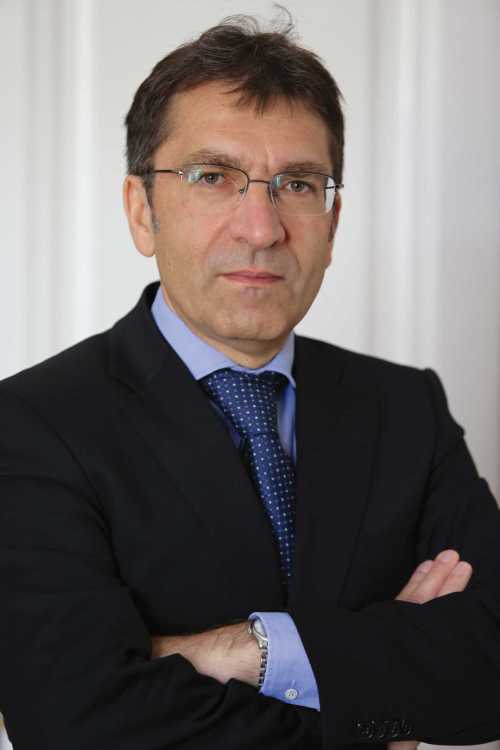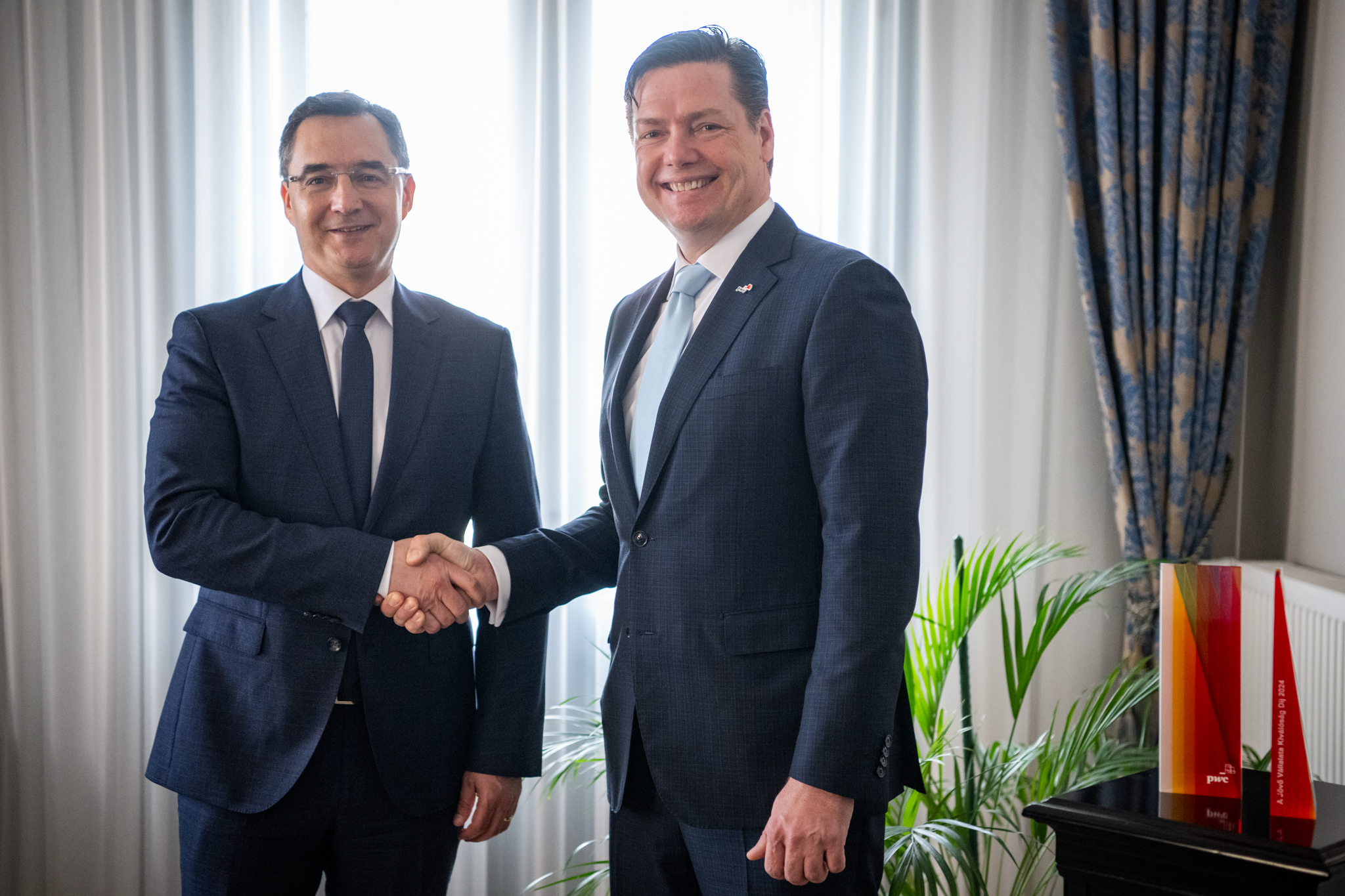Q&A: Econ ministry on foreign direct investment

In this interview from the July 4-17 print edition of the Budapest Business Journal, Antal Nikoletti, deputy state secretary responsible for external economic relations at the Ministry of National Economy (pictured), talks to the Budapest Business Journal about FDI flows, the future shape of Hungary’s economy, and the need for banking reform.
Q: Where is most foreign direct investment targeted?
A: Most, more than 20%, is in the processing industry, next comes computing and electrical, electronic manufacturing, then optical products, pharmaceuticals and then food industry.
Q: Where does that money come from?
A: The biggest part is from Germany, and it will likely long remain so, but thereafter it becomes less obvious. Luxemburg and the Netherlands are next on the list, but that is because so many companies are headquartered there.
There are a lot of mid-size and perhaps in Hungarian terms large-sized companies are producing in “silence”, without big publicity and exporting back to Germany. We have become a strong component production center for Germany, just like the Czechs. We are very much part of the German industrial engine. BMW has no factory here, but 10% of their components are produced here in Hungary, and the same is true for other makers in many sectors. We are almost an empire of car component manufacturing in the region. Of course the Poles, Czechs and Slovaks have huge investments too.
Q: And from the government’s perspective, manufacturing remains the priority?
A: It is clear that it is not the service sector that is the target but rather production. You can see what happened to those countries like the UK or France that decided 20- 30 years ago to invest more into services, compared to Germany which put more into production, given its engineering mindset. We believe this is the right path to follow. Not everybody can be an artist or a chef.
Q: How do shared service centers fit into that, given it is a booming sector for Hungary?
A: We need to serve the interests of those who go beyond the borders of Hungary and set up regional centers; they are a different story, and that can be a focus for us. If someone like Vodafone or Shell, as has already happened, wants to plant something in Hungary to serve the rest of the world that is administrative or logistical, they will be more than welcomed.
Q: There is a preponderance of SSCs in Budapest, relatively few in the countryside. Is that a concern?
A: Language skills are getting to be a bottleneck, but there will be action to remedy that; language skills need to be kept up if finding suitable staff is not to become more difficult. Costs are actually lower by 30% or more in the provincial cities and towns. We have universities producing a workforce with language skills and the labor costs are still lower, and the local business tax is usually lower than in Budapest. Also, the real estate prices are much lower. We know of cases where the local government will help make a move more attractive, help find an appropriate site.
Q: What are Hungary’s strengths in attracting FDI?
A: The workforce is well educated and remains relatively cheap; you still get value for money. The logistics of the country are good: industrial parks, road density, rail tracks and the incentives system, and there is a good living environment to attract expats to live and work here.
Q: And what criticisms do you hear from investors here?
A: The investors are satisfied. What the media usually picks up on is the predictability of economic policy. But, frankly, for the last five or six years, ever since the crisis erupted, nowhere in the globe has been stable. The whole world changed, it is not only Hungary; the global banking system, for example, has been completely restructured. In the last four years in Hungary measures had to be taken to stabilize the country.
Q: And now? Will the government slow the pace and talk more?
A: The country was in a very difficult situation; there was no time to talk. The country’s financial indebtedness was growing, there had been no structural changes, and if these actions had not been fast enough the last moment to act would have been lost. These steps had to be very radical.
The new media tax is a similar situation as with the banks; there has to be social justice overall. Structural corporate taxes here are very low, compared with Italy at 60% or Sweden, but we have to take the money from somewhere. Of course there will be complaints, but banks generated huge profits; the media still generates huge profits. Compare it to agriculture where people work night and day at certain points of the season, but they are living below what their efforts deserve and they can achieve.
And let’s not forget that the market defines the opportunities. Look at banking: special taxes were introduced and that has forced banks to think about the services they offer. Banking will be different. What we expect is that they create value for their customers: those banks that do that will be profitable.
Q: How many banks do you think will leave Hungary?
A: I was saying six years ago that there would be two or three banks that will close and leave the country. Today I say the same. Two will definitely go, probably a third and possibly a fourth.
Q: When you say that, do you have actual banks in mind?
A: Of course, though I won’t name them. For the fourth and maybe the third the question will really be if they can come up with something new. But they will have to downscale and create strategies that utilize their advantage. A foreign bank cannot add too much value when it comes to financing state-owned companies or municipalities, but they can be useful for multinational companies, especially those from the same country. There was an illusion – and I know it well because I worked in banks – that the trees would keep growing and touch the skies, that annual growth rates of 30-40% were sustainable. The future is in finding the right market; for foreign bank it is the segment in which they are better than the others. The future also lies in digitalization and pushing down prices, in closing branches and downscaling, in developing new solutions that add value. The banks were not looking ahead. But then this applies to the whole global banking industry: new regulations alone are not enough, nor even additional capital;, good old prudency is still missing, and caring banking.
Q: The government seems keen to have more Hungarian-owned banks.
A: I think if you were in Austria, or Germany, or the UK and you woke up one day and realized 80% of your banking market was in foreign hands, nobody would say it is normal. Usually the majority is in domestic hands because local bankers understand what is happening in the country. Hungarian bankers are very good, they are full of ideas and the latest know-how can easily be customized; the technical level of Hungarian banking is already there, but we have to rely more on local management. There needs to be more Hungarian ownership in the banking industry to make sure decisions that impact Hungary are made here and not somewhere else. Local knowledge, understanding of the customers, this is what the market, the customer, needs, not only government; cooperatives that are in the villages and know the customers and the level of risk involved in making a loan. I believe global models have their place on the market, but there has to be more room for cooperatives and local banks.
The question is how you get from the current point A to point B. The path can be painful, it will not be linear, but there is no question that “B” is a healthier place in which to be than “A”.
Q: In the run up to the election, opposition leader and former PM Gordon Bajnai said on several occasions that FDI levels were basically only at depreciation levels. How do you counter that?
A: Before the crisis, we were in different times. In the early and late ’90s FDI inflow was much higher because there was a vacuum. Those times will not come back in the same form, but we now have an even better platform with growing pools of technicians, engineers and economists who are hungry to innovate. Immediately prior to the crisis the FDI flow was around €3-4 bln per annum, then the crisis came and in 2009 it dropped dramatically – you saw the same across the region. Now everybody thinks three times about where to invest, what to outsource. Everybody is macro cycle driven, but investment levels are starting to come back and we hope it will be more productive, innovative capital rather than speculation driven.
Q: The government has been accused of being anti-multinational. Do you recognize that criticism?
A: No, not at all! No other country pays so much attention to multinationals who target sustainable value creation. Companies that have already invested in this country are satisfied. When we talk with investors they are positive, but I do not doubt that the media influenced many who were thinking about coming to one of the Central European countries. Three years ago these people were predicting that Hungary would collapse. Today, those voices have just disappeared. Even the IMF has had to recognize, as everybody does, that for the numbers in every single one of the indices there is an improvement. Both in macro and in micro terms there is perceptible improvement. The question is how we build the future and which sectors will be the leading factors in defining the future for this country?
Q: With some of the functions of this ministry transferring to an expanded foreign affairs ministry, what does the future hold for you?
A: The changes will shift some activities from here to the Ministry of Foreign Affairs and Trade but it will finally be in one hand and will remain a team-work. It does not matter where those activities are based, what matters is that it is managed professionally. And it will be. Our ministry will still have an important role to play; we still have competency for national economic strategy, which forms part of our international plans. We hand over functions in better shape than they were a year ago. We have refreshed economic diplomacy and have new people from the younger generation in place who will come into power in time. In the last year there has been a lot of development of the methodology of how you manage these people working abroad in the framework of our embassies. If all the little parts are working well, the whole will work well; this is a simple rule to follow.
SUPPORT THE BUDAPEST BUSINESS JOURNAL
Producing journalism that is worthy of the name is a costly business. For 27 years, the publishers, editors and reporters of the Budapest Business Journal have striven to bring you business news that works, information that you can trust, that is factual, accurate and presented without fear or favor.
Newspaper organizations across the globe have struggled to find a business model that allows them to continue to excel, without compromising their ability to perform. Most recently, some have experimented with the idea of involving their most important stakeholders, their readers.
We would like to offer that same opportunity to our readers. We would like to invite you to help us deliver the quality business journalism you require. Hit our Support the BBJ button and you can choose the how much and how often you send us your contributions.








